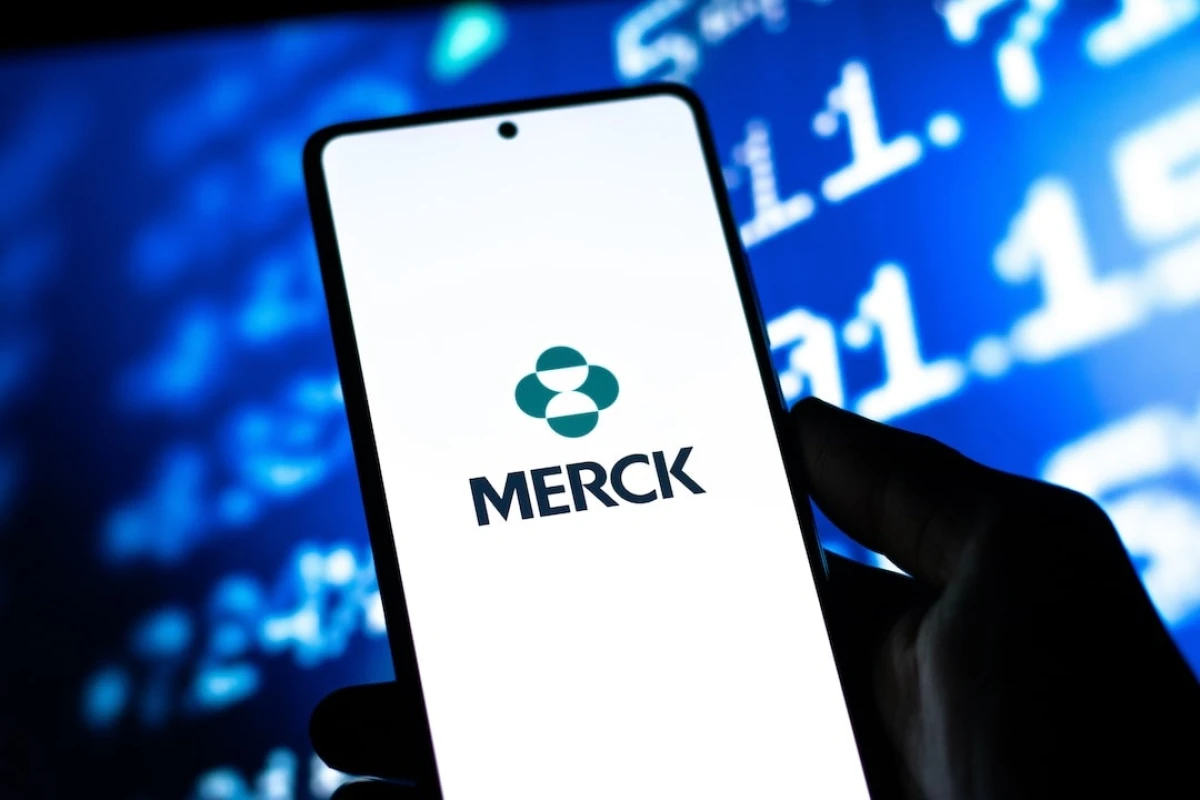#What You Need To Know
Merck & Co. (NYSE: MRK), a prominent player in the oncology sector, is nearing a significant acquisition of Harpoon Therapeutics Inc. (NASDAQ: HARP), a cancer drug developer, for approximately $700 million.
This strategic move aims to bolster Merck's position in the lucrative cancer treatment market. The potential acquisition, priced at around $23 per share, targets South San Francisco-based Harpoon, known for its innovative approach in cancer therapy, particularly through T-cell engagers. These therapies engage the body's immune system to combat cancer, focusing on conditions like lung cancer and multiple myeloma.
Harpoon's leading drug candidate targets a specific molecule prevalent in small-cell lung cancer and neuroendocrine tumors, currently undergoing early-stage trials.
This acquisition reflects Merck's broader strategy to enhance its product portfolio, especially as its best-selling cancer drug, Keytruda, faces impending pricing challenges. Keytruda's substantial revenue of $20.9 billion in 2022 underscores its global impact.
Merck's pursuit of Harpoon aligns with its recent pattern of external investments in promising cancer therapies, including a $4 billion agreement with Daiichi Sankyo Co. for rights to three experimental drugs and a $10.8 billion deal with Prometheus, an autoimmune drug developer.
The Harpoon deal, set to reshape Merck's oncology offerings, marks a critical step in the company's ongoing expansion and diversification within the pharmaceutical industry.
Sign up for Investing Intel Newsletter
#Why This Is Important for Retail Investors
Diversification of Merck's Portfolio: For retail investors, the acquisition of Harpoon Therapeutics by Merck signals a strategic expansion of Merck's product portfolio. By adding innovative cancer treatments, Merck diversifies its offerings. This diversification can potentially mitigate risks associated with over-reliance on a single product, like Keytruda, enhancing the company's stability and attractiveness as an investment.
Growth Potential: The deal represents a forward-thinking move into next-generation cancer therapies, which are a rapidly growing segment in the pharmaceutical industry. For investors, Merck's entry into this area suggests potential for significant long-term growth, as these therapies could become major revenue drivers in the future.
Increased Competitive Edge: Acquiring Harpoon Therapeutics could strengthen Merck's competitive position in the oncology market. By integrating Harpoon's novel technologies and drug candidates, Merck could outpace competitors in developing advanced cancer treatments. This competitive edge can translate into higher market shares and revenues, benefiting investors.
Response to Future Revenue Challenges: Keytruda, Merck's top-selling cancer drug, faces potential pricing pressures and competition in the coming years. The acquisition is a proactive step to counter these challenges, ensuring sustained revenue streams. For retail investors, this demonstrates Merck's commitment to long-term financial health and market leadership.
Historical Success in Strategic Acquisitions: Merck's track record of successful acquisitions and integrations, such as its deals with Daiichi Sankyo Co. and Prometheus, offers a positive indicator for the Harpoon acquisition. This history suggests that Merck has the expertise to effectively leverage new assets, potentially leading to enhanced shareholder value and increased stock performance over time.
#How Can You Use This Information?
Here are some of the investing ideas that can be explored using this information:
Growth Investing
The acquisition of Harpoon Therapeutics positions Merck in the high-growth segment of cancer immunotherapy. Investors seeking growth might see this as an opportunity to invest in a company poised for expansion in a cutting-edge medical field.
Growth investing focuses on stocks of companies expected to grow at an above-average rate compared to other stocks in the market; learn more in our article titled 'What is Growth Investing?'.
Momentum Investing
Given the positive market reaction to such acquisitions, both Merck and Harpoon's stock could experience short-term momentum. Investors could capitalize on this by investing in HARP or MRK stocks during this upward trend.
Momentum investing rides the wave of existing market trends by buying assets that have shown an upward price trend and selling those in a downtrend.
Healthcare Sector Investment
This acquisition reinforces the healthcare sector's potential, especially in innovative cancer treatments. Investors might explore ETFs or mutual funds focused on healthcare or biotechnology as a way to gain exposure to this dynamic sector.
Sign up for Investing Intel Newsletter
#Read What Others Are Saying
Bloomberg: Merck Is in Advanced Talks to Buy Cancer Drugmaker Harpoon Therapeutics
Reuters: Merck to buy Harpoon Therapeutics for $680 million
The Wall Street Journal: Merck to Buy Harpoon Therapeutics for $680 Million
